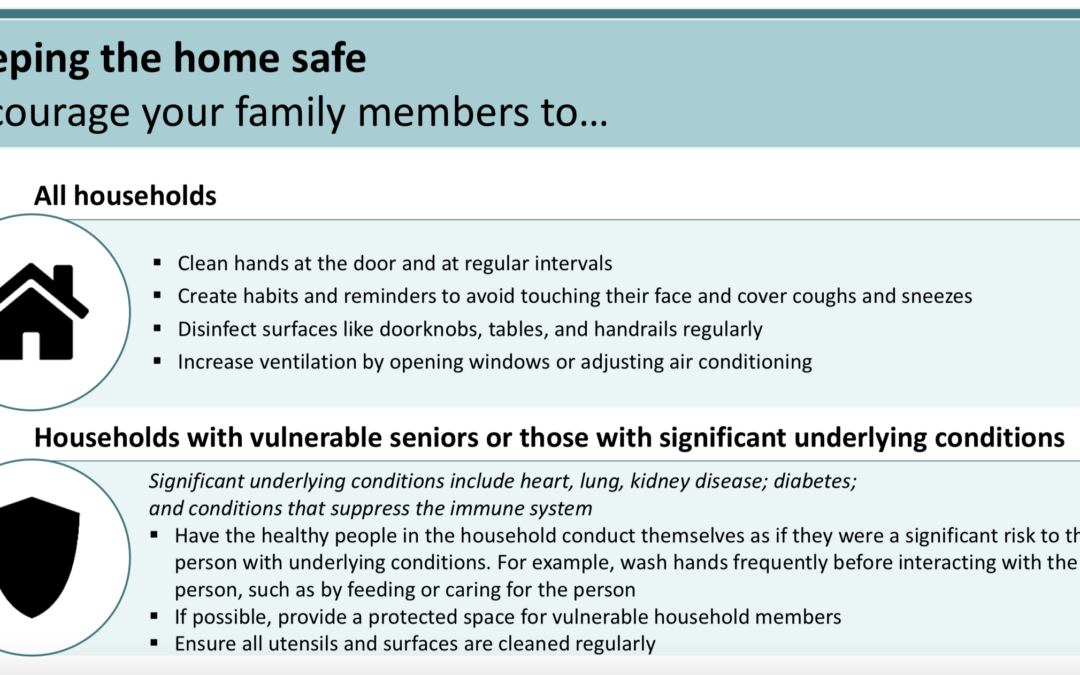Clutter is never a good thing.
Marie Kondo became a global influencer based on that principle. I was inspired by her life-changing work to become a Certified KonMari Consultant to help others tidy their homes and their lives to leave clutter behind and experience the daily spark of joy.
The COVID-19 Coronavirus indirectly highlights the problems that can be created by clutter in a different way than KonMari Consultants usually focus on in helping people transform their living environments with the KonMari Method of comprehensive and lasting tidying done by category. (See my Services page for details.)
Before briefly exploring the coronavirus-clutter connection, first let me stress that the only important thing right now is everyone’s safety, health, and well-being. If sequestering yourself in a cluttered house until the worst of the threat passes will keep you safe, then that house is a sanctuary to be appreciated, tidy or not.
Whatever your living situation, please take a moment to go online and review the Centers for Disease Control and Prevention information on COVID-19.
There are two important points to make
about the intersection of coronavirus and clutter:
- Clutter—in all of its forms and through all of its components—is like a vacation resort where germs live and flourish.
- Clutter covers surfaces of all kinds, making it impossible to properly clean and sanitize them.
The New York State Department of Health even has a Cleaning and Clutter website page as part of its coronavirus information package.
Health and cleanliness aren’t the only clutter issues that will arise as we increasingly shelter at home to avoid exposure to the coronavirus.
Many people will likely begin to see their living environments with a new perspective. After a long workday, for example, a rumpled couch in an untidy living room can seem like nothing more than a welcome refuge. However, in the light of day, when we’re “confined” to the cluttered rooms of our homes for extended periods, these spaces will begin to seem unpleasant—and over time these negative feelings will grow and intensify.
It’s well-known that clutter is a source of stress and anxiety. A Psychology Today article—just one of many easy-to-find sources on the topic—offers a list of reasons worth excerpting.
Here are the Top 5 problems
created by clutter from the article:
- Clutter bombards our minds with excessive stimuli (visual,olfactory, tactile), causing our senses to work overtime on stimuli that aren’t necessary or important.
- Clutter distracts us by drawing our attention away from what our focus should be on.
- Clutter makes it more difficult to relax, both physically and mentally.
- Clutter constantly signals to our brains that our work is never done.
- Clutter makes us anxious because we’re never sure what it’s going to take to get through to the bottom of the pile.
Being sequestered at home presents a great opportunity, which we might not otherwise have, to begin taking steps to reduce clutter. As my small way of giving back during these difficult times, I am happy to connect by phone, email or even FaceTime with anyone who would like to discuss how to combat clutter, free of charge. This is my way of connecting with others at a time when being kind and supportive is so needed.
For those who become inspired during an extended stay at home to explore the benefits of Marie Kondo’s KonMari Method of tidying and decluttering, please get in touch to discuss possibilities, and begin by viewing my Packages & Rates page. It’s the first step on a journey to transform your life by tidying your space and living surrounded only by things that spark joy. I am offering a 20% Spring cleaning discount through May to any client looking to book a session—the session doesn’t have to take place before May … just booked!
My direct email is [email protected] and my phone number is (203) 772-8883. Honestly, reach out, I’m here, even if it’s just for some words of encouragement or comfort. We are in this together!!
Please remember, though, that the most important thing right now is to follow the advice of local, state and federal government officials to keep yourself and your family safe and healthy.
